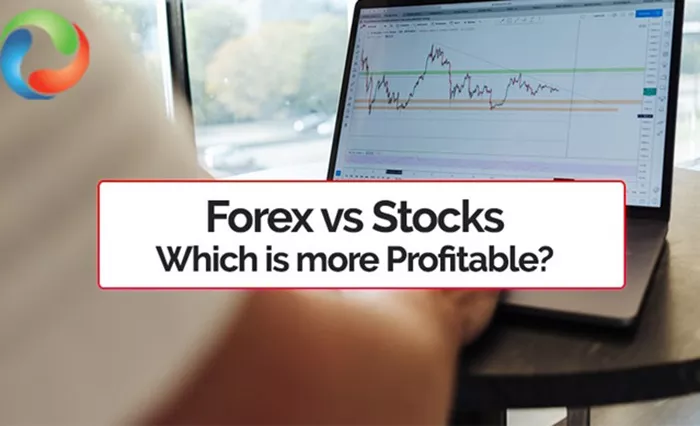The debate between forex (foreign exchange) trading and stock trading is a common one among investors and traders looking to maximize their profitability. Both markets offer unique opportunities and risks, and the potential for profit can vary based on individual strategies, market conditions, and personal preferences. This article delves into the key differences between forex and stocks, examining which might be more profitable depending on various factors.
Overview of Forex Trading
Definition and Mechanism
Forex trading involves buying and selling currencies in the foreign exchange market. This market is the largest and most liquid financial market in the world, with a daily trading volume exceeding $6 trillion. Forex trading operates 24 hours a day, five days a week, allowing traders to react to global economic events in real-time. The goal is to profit from fluctuations in currency exchange rates.
Profit Potential and Leverage
Forex trading offers the potential for high profits due to the market’s liquidity and the availability of leverage. Leverage allows traders to control a large position with a relatively small amount of capital. For example, with a 100:1 leverage, a trader can control $100,000 with just $1,000 of their own money. While this can amplify gains, it also increases the risk of significant losses.
Overview of Stock Trading
Definition and Mechanism
Stock trading involves buying and selling shares of publicly listed companies. Stocks represent ownership in a company, and their value can fluctuate based on company performance, market conditions, and broader economic factors. Stock markets operate on specific trading hours and are subject to varying regulations depending on the country.
Profit Potential and Dividends
Profit in stock trading can come from capital gains (the increase in stock price) and dividends (periodic payments made by companies to shareholders). Unlike forex trading, stock trading does not typically involve high leverage. However, successful investors can still achieve substantial returns through careful analysis, market timing, and long-term investment strategies.
See also: What Is Forex: All You Need To Know
Comparative Profitability
1. Market Liquidity and Accessibility
Forex
The forex market is highly liquid, meaning that large transactions can be executed without significantly affecting the price. This liquidity provides opportunities for both short-term trading and long-term investment. Forex trading is accessible from anywhere in the world, thanks to its decentralized nature and 24-hour trading cycle.
Stocks
Stock markets, while also liquid, can be less so compared to forex, especially for smaller companies or those with lower trading volumes. Access to stock markets is typically constrained by trading hours, though extended trading hours and pre-market sessions offer some flexibility.
2. Leverage and Risk
Forex
Leverage in forex trading can be a double-edged sword. While it allows traders to amplify profits, it also increases the risk of substantial losses. Effective risk management strategies are crucial in forex trading to mitigate the risks associated with high leverage.
Stocks
Stock trading generally involves lower leverage, which means the potential for amplified losses is reduced. While this may limit short-term profit potential, it also provides a more controlled risk environment. Investors in stocks often rely on fundamental and technical analysis to guide their decisions.
See also: In Which Country Is The US Dollar Most Valuable?
3. Market Volatility
Forex
Forex markets are influenced by global economic events, geopolitical developments, and market sentiment. This can lead to high volatility, presenting both opportunities and risks. Traders need to stay informed about global news and economic indicators to make informed decisions.
Stocks
Stock markets can experience volatility due to company-specific news, earnings reports, and broader market trends. While stock prices can be volatile, they are often influenced by more predictable factors compared to the forex market. Long-term investments in stocks may benefit from company growth and dividends, reducing the impact of short-term volatility.
4. Investment Horizon and Strategy
Forex
Forex trading is often associated with short-term strategies such as day trading and scalping. These approaches aim to capitalize on small price movements over short periods. Forex traders need to be adept at technical analysis and responsive to market changes.
Stocks
Stock trading can accommodate a range of strategies from short-term trading to long-term investing. Investors may focus on growth stocks, value stocks, or dividend-paying stocks, depending on their investment goals and risk tolerance. Long-term stock investors benefit from the potential for compound growth and dividends.
5. Costs and Fees
Forex
Forex trading may involve lower transaction costs compared to stock trading, as brokers typically earn through the spread (the difference between the bid and ask price). However, high-frequency trading and leveraging can incur additional costs.
Stocks
Stock trading often involves brokerage fees and commissions, which can vary based on the broker and the type of trade. For long-term investors, these costs may be outweighed by the potential for capital gains and dividends.
Conclusion
Determining whether forex or stock trading is more profitable depends on various factors, including trading style, risk tolerance, market conditions, and individual preferences. Forex trading offers high liquidity and leverage, which can lead to substantial profits but also increases risk. In contrast, stock trading provides opportunities for both short-term gains and long-term growth, with generally lower leverage and potentially lower risk.
Ultimately, the most profitable approach is one that aligns with an investor’s or trader’s skills, strategies, and financial goals. Both markets offer unique opportunities, and success in either requires careful planning, disciplined execution, and ongoing education.
Related Topics:

